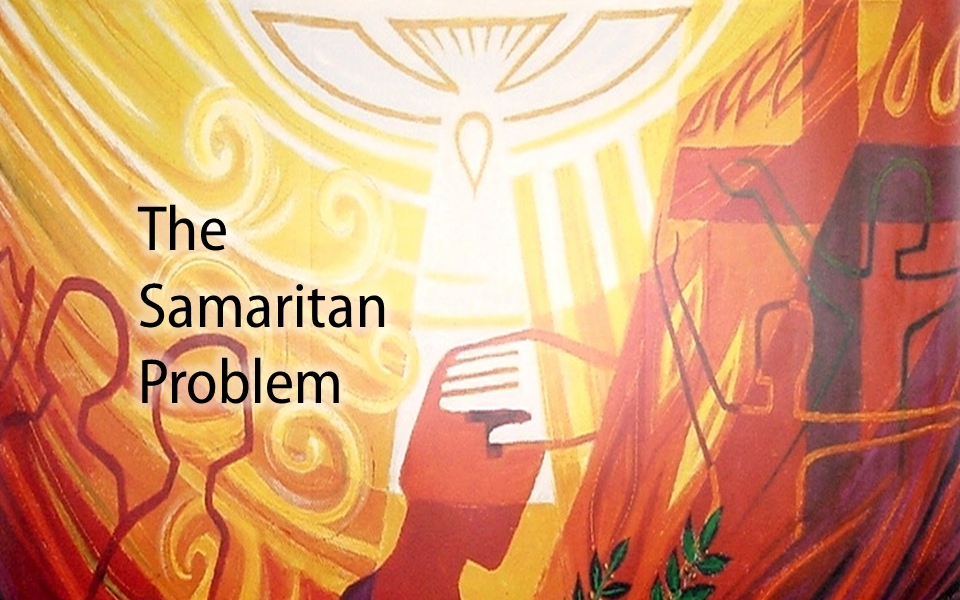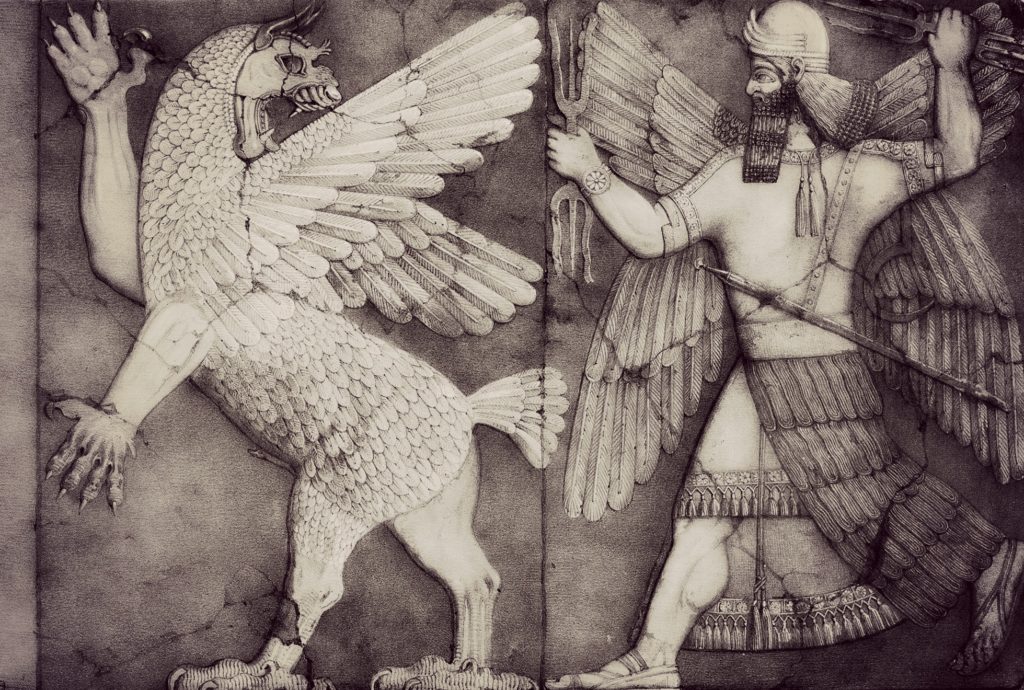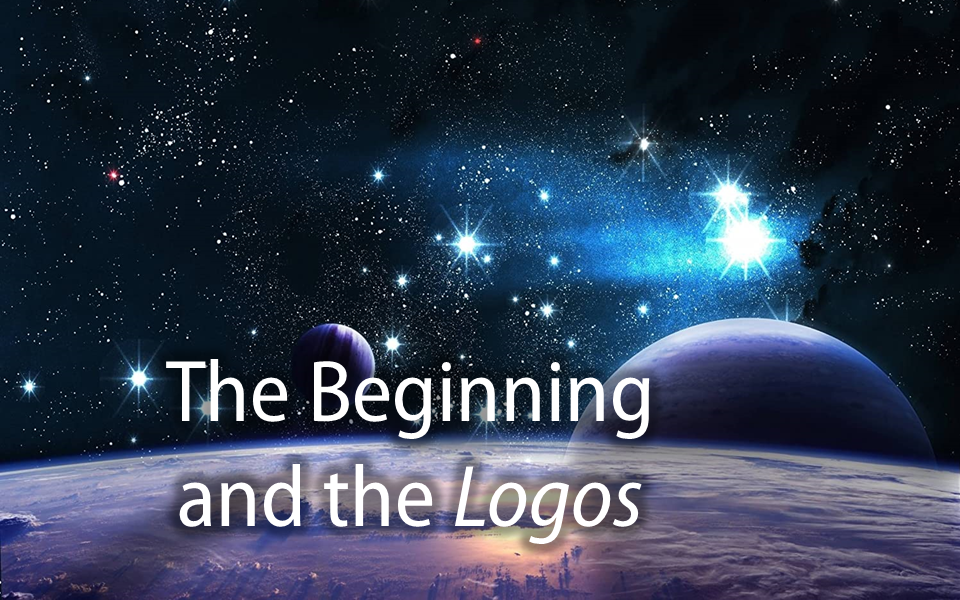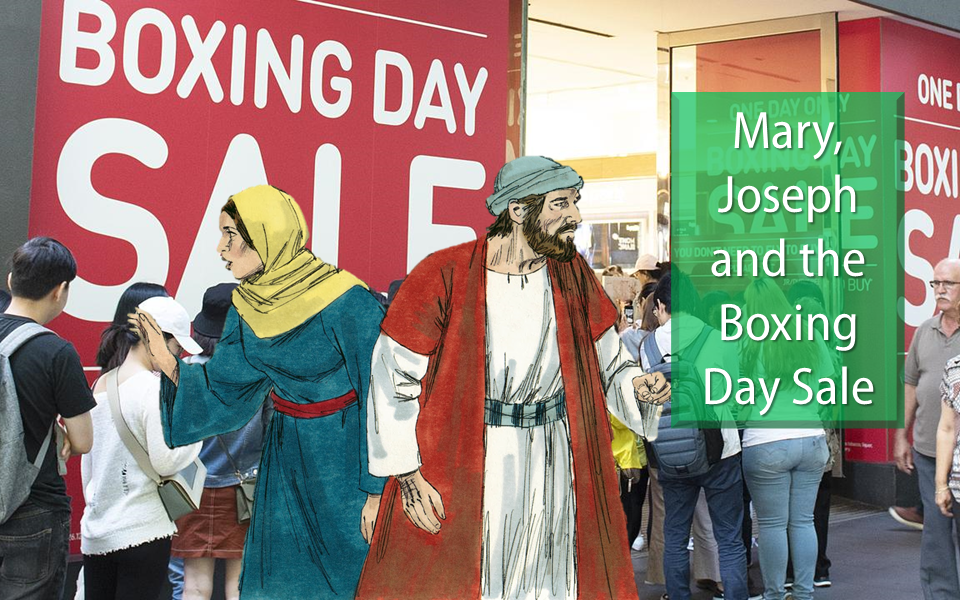Watch sermon video here:
Hespeler, 23 January 2022 © Scott McAndless
Nehemiah 8:1-3, 5-6, 8-10, Psalm 19, 1 Corinthians 12:12-31a, Luke 4:14-21
The passage we read this morning from the Gospel of Luke is an important story that I often return to. But every time I come back to it, there is one part of it that really strikes me because I’m not entirely sure what it means.
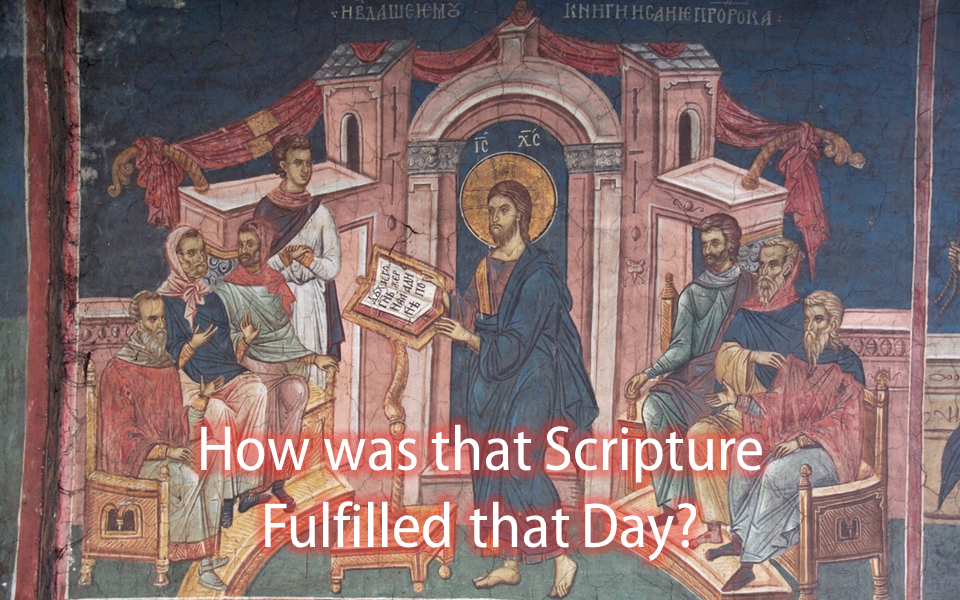
We are told that, when Jesus went to a synagogue meeting in his hometown of Nazareth, he read out a short portion of scripture. The passage he read is taken from the Book of Isaiah chapter 61. What strikes me, however, is how Jesus ends his reading. “And he rolled up the scroll, gave it back to the attendant, and sat down. The eyes of all in the synagogue were fixed on him. Then he began to say to them, ‘Today this scripture has been fulfilled in your hearing.’”
What I want to know is what on earth does that mean? Jesus seems to be saying that this particular piece of scripture that had been written maybe five hundred years previously, had just been accomplished right there while these people were listening. How do we make sense of that? In particular, I would like to know what the people who were listening to Jesus say such things were thinking because they appear to understand him. “All spoke well of him,” Luke tells us, “and were amazed at the gracious words that came from his mouth.” So it all seemed to make sense to them and they had no problem with it. But what did they think that Jesus was saying?
The Jubilee Law
It is hugely significant that Jesus should have said this about this particular passage of scripture because there is a whole lot of meaning packed into those three verses. You cannot understand that passage without understanding some of the older passages of scripture that stood behind it. In the Book of Leviticus, there is an ancient law which is called the Law of Jubilee. It was a law that was designed to basically reset the ancient Israelite society and economy every fifty years.
Apparently, it was God’s intention that ancient Israel should be a society where everybody had the same chance to prosper. God didn’t want there to be huge differences between the rich and the poor. But, of course, what happened in that society was the same thing that naturally happens in most societies. Over time, some people fell into debt and hardship and lost the land that had been in their families down through the generations. Some even ended up in such dire straits that they were sold into slavery in order to pay their debts.
Meanwhile, there were others who profited from the misfortune that happened to their neighbours. They collected their debts, took their lands when they defaulted and even ended up owning their neighbours as slaves. This is just the kind of thing that has always happened in this world. There have always been and always will be those who enrich themselves because of the misfortune that befalls others.
A Reset Every Fifty Years
But in ancient Israel, the idea was that this sort of situation would not be tolerated forever and so, every fifty years, the year of Jubilee was proclaimed. During this year, all debts were to be forgiven, all slaves were to be released and all property had to be returned to its original owners. Basically, society was to be reset so that everyone could start again on a level playing field.
Now, I know what you’re all thinking. It might sound like a nice idea to redistribute all the wealth and set things back as they were so that everyone could be even in theory, but your minds are reeling with the thought of all of the chaos and disaster such a law would cause in our modern society. Can you imagine if we tried to do something like that? Why, it would likely lead to the collapse of our entire economy. This might sound nice but it does not seem like a very practical law.
It May Not be Practical Today
And I certainly agree with that. It is possible that these kinds of measures might have worked in an ancient Israelite agricultural society, but they would almost certainly bring ruin to our modern capitalistic society. But even if it is not practical today, I don’t think that means that we should just dismiss the intentions behind it.
I believe that this ancient law does say a lot about God’s intentions for society. As far as God is concerned, a situation where you have wild differences in terms of wealth and poverty is not something that should simply be maintained. It is something that you need to do something about. And if that is what is on God’s heart, then that should be a very serious consideration in our modern practice of the Christian faith.
Wealth Disparity
Because, guess what, we are living at a moment in North American history where disparity in terms of wealth is hitting a new extreme every year. The number of people who are extremely wealthy and who own a huge majority of the wealth of this nation get smaller every year. And everybody else ends up trying to get by with less. This disparity has been very much on display in the last couple of years as we have billionaires who have so much money that they have literally entered into a space race with each other because, I guess, they can’t figure out what else to do with all their wealth.
A Prophet Calls for a Jubilee
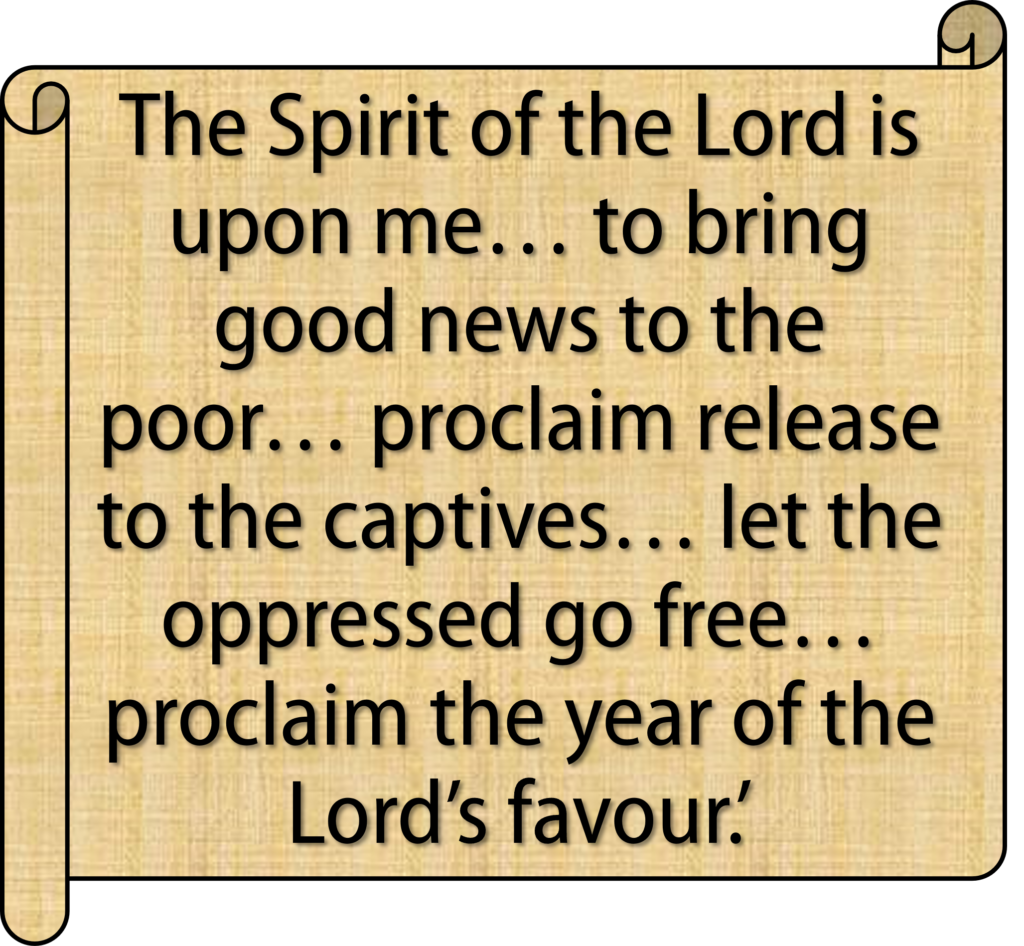
Okay, but I do hear you asking, what does this ancient Israelite law have to do with what Jesus said to the synagogue in Nazareth? Well, it has to do with that passage of scripture that he read out because he would have understood, and everyone present would have understood, what that passage was about. It was an announcement made by a prophet about the need for a Jubilee. That is what is meant by bringing good news to the poor, release to the captives or slaves and letting the oppressed go free. The year of the Lord’s favour is the year of Jubilee.
The prophet who spoke this oracle was living in a time when his society was teetering on the brink of collapse because of extreme inequality. Basically, a few people were getting very rich and a whole bunch of people were being pushed into extreme poverty and slavery and the whole thing was a mess. So the prophet saw the need for a reset, a Jubilee. But here was the problem, there was nobody who had the kind of authority needed, no king or priest or other leader, who was willing to declare that reset. And so, basically, the prophet said, “Hey, the spirit of the Lord God is upon me, so I am going to go ahead and proclaim a year of God’s favour myself.
How did Jesus Fulfill it?
So, my question is this. What did Jesus mean when he said that that ancient scripture, spoken by that prophet, was fulfilled right there in synagogue in Nazareth? He pulled out the words of an ancient prophet who was calling for a reset of his society based on an even more ancient law that laid out how you were supposed to reset the society when things got out of balance. And then he said that all of that had just come true because, I guess, Jesus was there.
I think there’s no question that that is what he means. He was announcing (and this is something that becomes a theme for the entire Gospel of Luke) that because Jesus was there, the Jubilee year had come.
Now, Luke obviously doesn’t mean that literally. He is not saying that, because of Jesus, all debts were forgiven, all slaves were released and all land returned to people who had lost it. Pretty clearly that didn’t happen. And yet, at the same time, everywhere that Jesus goes he is talking about “forgiving our debts as we forgive our debtors.” Jesus doesn’t free any slaves, but he certainly preaches to them a message of freedom and release. What’s more we are told again and again throughout this gospel that Jesus brought good news specifically to poor people. He may not have brought about a literal year of Jubilee, but he certainly did what he could to make Jubilee as real as possible in the lives of people that he met.
How Can we do that too?
And all of that leads me to a question today. I know that Jesus is not just an ordinary person. He is the Son of God. Jesus has done so much for us especially in and through his death and his resurrection. Yes, Jesus uniquely offers us forgiveness and hope and new life. But when I see Jesus in this passage declaring that the scripture from the Book of Isaiah has just been fulfilled, I don’t get the impression that he’s referring to any of that. No, he is referring mostly to the message that he was proclaiming throughout his life – especially his message of hope to those who were indebted, enslaved in some way and dispossessed. I think that Jesus is saying that this is a kind of fulfillment that needs to be in reach for any of us when it is called for.
And that makes the answer to the question of how Isaiah’s prophecy can be fulfilled a really urgent question for me right now. It seems to me that we are living at a particular moment in time when we are in need of a bit of a reset. No, I’m not suggesting that we need to cancel all debts or undo all sales of property or anything like that. I am not naïve about the kind of havoc that would cause. But, at the same time, I’m really not sure that we can just keep on going as we have been.
The Need for a Change
We have seen the wealth of this nation and many other nations become heavily concentrated into the hands of fewer and fewer extremely wealthy people. There are people alive today who have so much wealth that they could literally never spend it all. Meanwhile, more and more people have been falling further into poverty. And, yes, I know that there will always be rich and poor, there is no escaping that, but the balance between those two extremes has been thrown way off.
I was kind of hopeful, a year and a half ago, that we would actually see some movement on that front. Remember when we used to talk about how much we depended on low wage frontline workers? How they were the true heroes that would save us? I really thought that maybe we were going to start treating them that way, but apparently that hasn’t happened and it has actually been those who were already wealthy who have been the only ones to see their wealth increase during this crisis. It seems to me that we need some kind of reset when it comes to those matters.
I am also concerned to see that we’re getting into a situation where a younger generation that is coming up is simply being priced out of housing. If current trends on housing prices continue, the great majority of people just starting out right now will simply never be able to afford to buy a house. They may not even be able to make rent in any sustainable way? How can a society persist when that many people simply can’t afford a place to live? I think we need a reset.
We Need a Reset
I just don’t see how we can simply carry on with how things have been going in terms of wealth disparity, wages, debt and housing. Some kind of reset is needed. I also don’t think that we can just carry on with our relationship with the natural environment where we have been taking and taking without thinking about what the long-term cost might be. We need a reset.
And, in case I haven’t said it enough, I do understand that the reset envisioned by the ancient Jubilee law in Israel would not work for us. It may have worked once in a very different society, but the specific measures became deeply problematical over time.
But that did not mean that Jesus couldn’t get up centuries after the original law was written and declare for all to hear that this ancient law and a prophecy about it had been fulfilled right there. He did not mean that all of the specific Jubilee measures were being taken. But what he was declaring was that God, through his ministry, was bringing about the fulfillment of the intention of the original Law.
And I honestly believe that if Jesus could do that, then we could too. A reset is possible. And it can begin with even only a few people believing that things can be different. It can begin with us praying for that reset – a rethinking of the priorities of our society. It can begin with us demanding change from our leaders. This is the powerful fulfillment that we need and, as Jesus showed us, it can just begin with somebody saying that it is being fulfilled.


